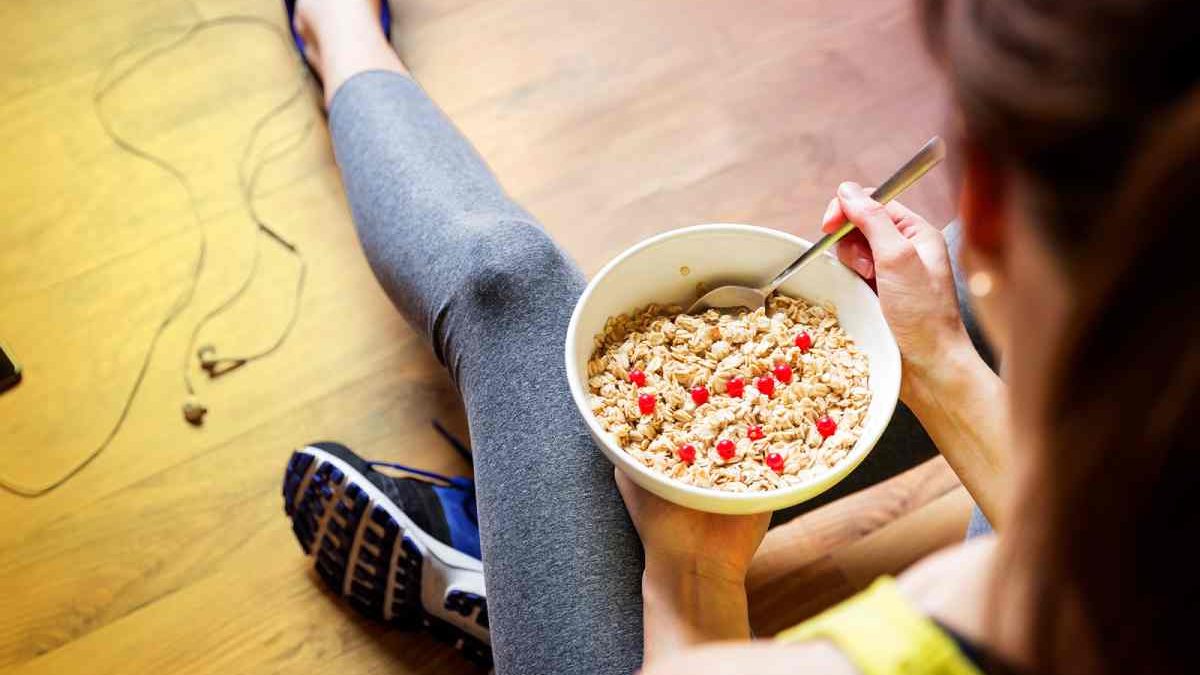Proper eating involves more than just controlling how much and what kind of food ends up on the plate. It also includes understanding at what hours a person should and can afford a snack while playing at कसीनो ऑनलाइन, how many times a day to eat, how to fight hunger.
Table of Contents
Good Nutrition VS Diet
Rational nutrition is often contrasted with dieting. This is due to the fact that the fascination of any restrictive diet is associated with the desire to bring the body into better shape by refusing a number of products, streamlining the regime.
What is the fundamental difference between the two?
The stable phrase “to sit on a diet” provides that after achieving the result, it will be possible to “get off” and return to normal eating behavior. As a result, the individual:
- Perceives dietary restrictions as temporary.
- Doesn’t think that the diet can be harmful.
- More easily accepts exotic options.
- Experiences stress and chooses options to reward patience.
Unlike dieting, proper nutrition is a long-term project. It involves a complete change in habits, diet composition and only really works when it becomes part of a new lifestyle. The only difference between a weight loss regimen and an optimal weight maintenance regimen is that the daily requirement for proteins, fats and carbohydrates changes as you lose weight.
Nutritionists advise recalculating and adapting the diet after losing every 5 kilograms of weight. This is the main feature of proper nutrition: if a person feels good and observes positive external changes in the diet, he can stay on this menu as long as he wants. So there is no need to constantly look for new “working” diets and try strange food combinations in order to lose weight.
Calories and Daily Regimen
Sufficient caloric content of the diet and multiplicity of meals protects against feelings of hunger. Infrequent eating leads to the fact that a person can not wait for lunch or dinner and either overeats or begins to snack on not the most useful for health and body products.
So, how to plan your daily calorie intake and PFC, the right eating and drinking regimen – simple advice from a nutritionist:
- It’s necessary to calculate the daily norm of calories. It depends on the gender, age, body weight and activity of the person. To do this, use mobile apps or online calculators; a more accurate result can be obtained by contacting a specialist.
- When calculating the PFC ratio, it should be based on the assumption that a person should eat 1 g of protein per 1 kg of body weight. This number of nutrients should remain almost constant – the body suffers from both a deficiency and an excess of protein. In general, the PFC proportion should approach the classical one: 1:1:4, in case of “overdoing” the calories are cut at the expense of fats and carbohydrates.
- A person should drink at least 35 ml/kg of pure water per day. So a girl with a mass of 62 kg will need 2170 ml of water. In order not to experience overfilling of the stomach and discomfort, it is enough to divide it into 10-11 intakes. The first glass is within half an hour after awakening, before breakfast.
- Breakfast is a must for a healthy diet. Skipping or postponing this meal slows down fat burning, forcing the body to urgently synthesize glucose and release lipids into the blood. The composition of breakfast: proteins and carbohydrates. It should be eaten within an hour after waking up.
- During the day, it is recommended to eat up to 5-6 times: three main meals and 2-3 snacks. Such a multiplicity of meals helps to avoid overeating, not to feel hunger and not to be distracted by food during the working day.
- The portion size is about 200 g. This is the optimal amount at which a person will be full until the next meal, but will not feel a sense of gravity and regret that they ate too much. The method of comparing a portion to the palm of your hand, fist, or handful is used to estimate size.
Proper nutrition involves certain food restrictions. To avoid stress and the subsequent desire to “reward” yourself, you should allow your favorite dishes in the menu, taking into account their composition and caloric content. Their energy value should not exceed 10%-20% of the daily diet.
Can You Eat Before Bedtime
Late meals do worsen the quality of sleep: it becomes more restless. The idea of going to bed with a half-empty stomach is more often explained as follows: during 1 hour of sleep the body spends on average about 50 kcal. Resting from food for 10 hours will “burn” 550 kcal. If a person eats at night, his body will be busy processing food rather than burning fat.
However, there is no scientific basis for the “don’t eat after 6 o’clock” suggestion. The myth that any crumb of bread in your mouth in the evening, inevitably deposited on the flanks, was debunked by Israeli scientists from the Institute of Nutrition. They proved that eating carbohydrates at night does not increase the risk of gaining weight.
Answering the question of how many hours before bedtime you can eat, nutritionists tell us that the total daily caloric intake and energy expenditure plays an important role. If a person consumes the proper amount of nutrients or is in a slight deficit (up to 20% of calories), he does not get better, but maintains or reduces weight.
Good nutrition is based on the body’s needs. It fosters new healthy habits, reduces the likelihood of a breakdown and restores health. Self-cooking helps to fully control the composition of meals, organize meals and snacks at home and at work.


